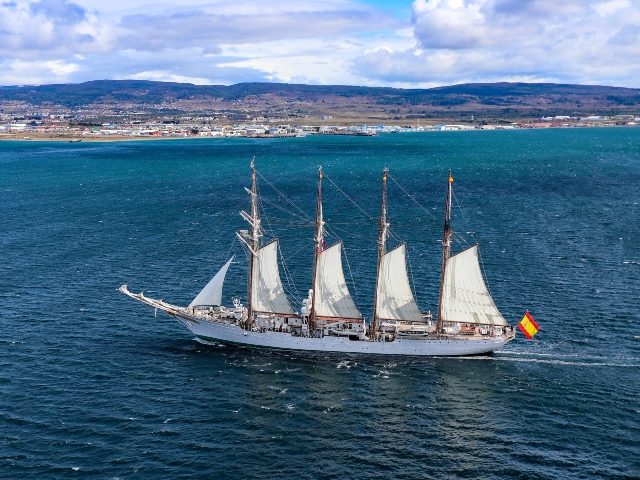China’s state-run Xinhua News Agency highlighted Chile’s commemoration of 500 years since the first crossing of the Strait of Magellan this week, hailing the feat as humanity’s first major step toward “globalization.”
The Strait of Magellan is a natural passageway uniting the Atlantic and Pacific oceans. It is located at the southernmost tip of Chile. Portuguese navigator Ferdinand Magellan and his party became the first Europeans to navigate the strait in 1520. This crossing allowed Magellan and his Spanish-funded crew to later become the first people to circumnavigate the globe.
Chilean President Sebastián Piñera, considered a center-right leader, traveled to the city of Punta Arenas, located along the Strait of Magellan, on Wednesday to honor the quincentenary of its first crossing with a special ceremony.
“Today we are commemorating 500 years of an achievement, of an epic tale that revolutionized the understanding of our planet. And that meant a great leap toward globalization, to understand that the world was one and that the world was round,” Piñera said, according to Agence France-Presse.
Piñera’s emphasis on the merits of globalization was spotlighted by China’s official state-run press agency. Xinhua’s Spanish edition further quoted Piñera in his speech as he praised Magellan for paving the way to world integration.
“Magellan … and his crew bequeathed us a new world because they managed to achieve a true globalization of our world with this navigation, and they managed to unite and forge encounters between cultures that were very distant and separated,” Piñera said.
China and Chile are closely united through Beijing’s Belt and Road Initiative (BRI), an enterprise that the Chinese Communist Party (CCP) uses to establish its influence across the globe. Through the BRI, Beijing loans developing nations vast sums of money to construct various infrastructure projects. BRI-member countries are often unable to repay the loans, placing them in great debt to Beijing, and thus under the thumb of the CCP.
Communist Party leaders first pitched the BRI as a plan to reconstruct the ancient Silk Road connecting eastern China to western Europe. They have since expanded the scheme to span nearly the entire globe, including countries across Asia, Europe, Africa, and Latin America. The worldwide venture embodies Chinese leader Xi Jinping’s stated aim to globalize China’s national interests.
While venturing into Latin America with the BRI, Chinese officials have claimed that the region was linked to the ancient Silk Road through Mexico.
“Noting that Mexico was a crucial junction on the ancient maritime Silk Road, [Chinese Foreign Minister] Wang [Yi] thanked the Latin American country for supporting the Belt and Road Initiative, and said China would like to deepen the bilateral practical cooperation,” Xinhua reported in 2018.

COMMENTS
Please let us know if you're having issues with commenting.